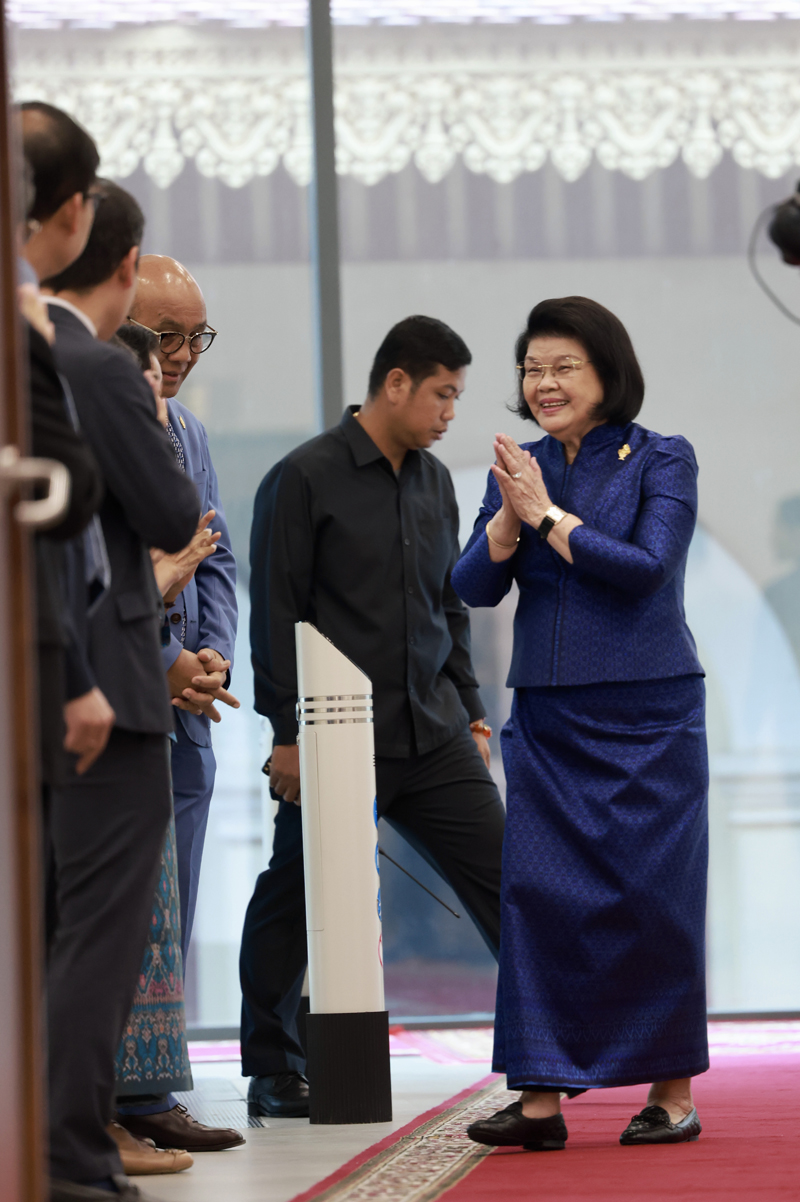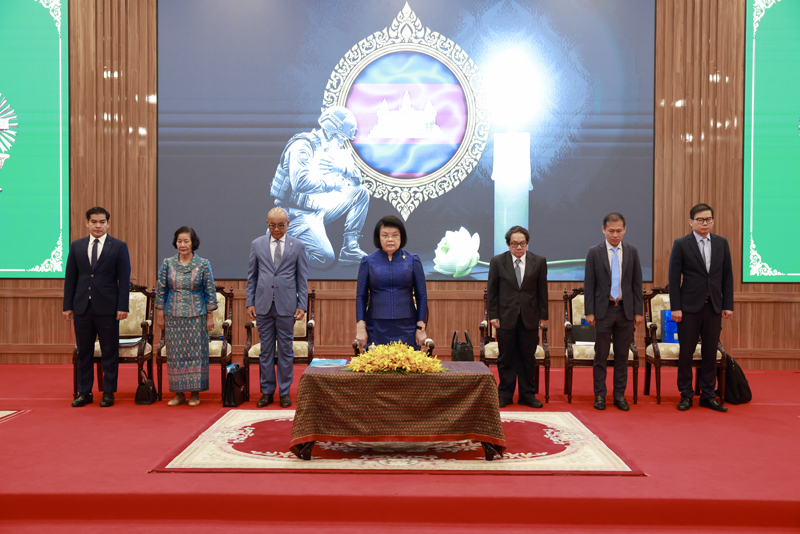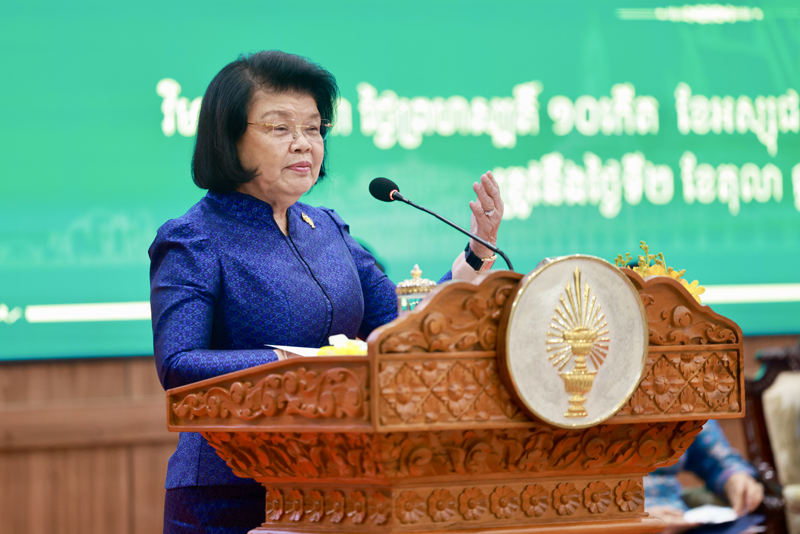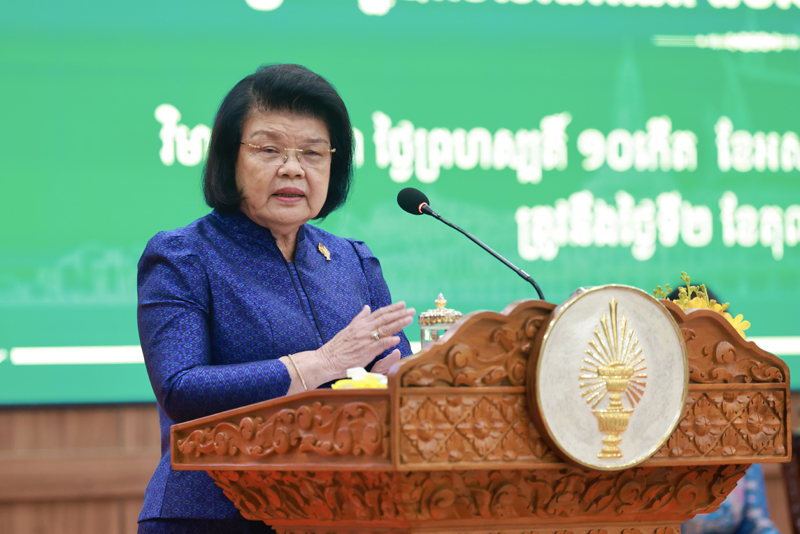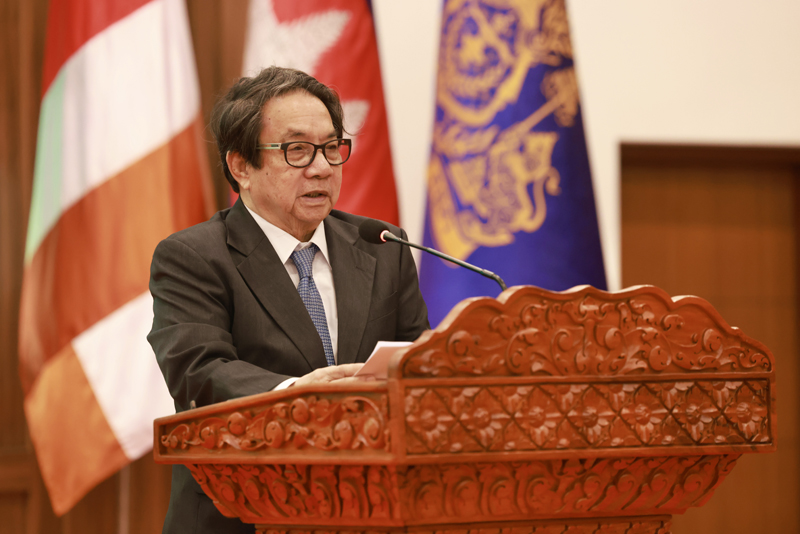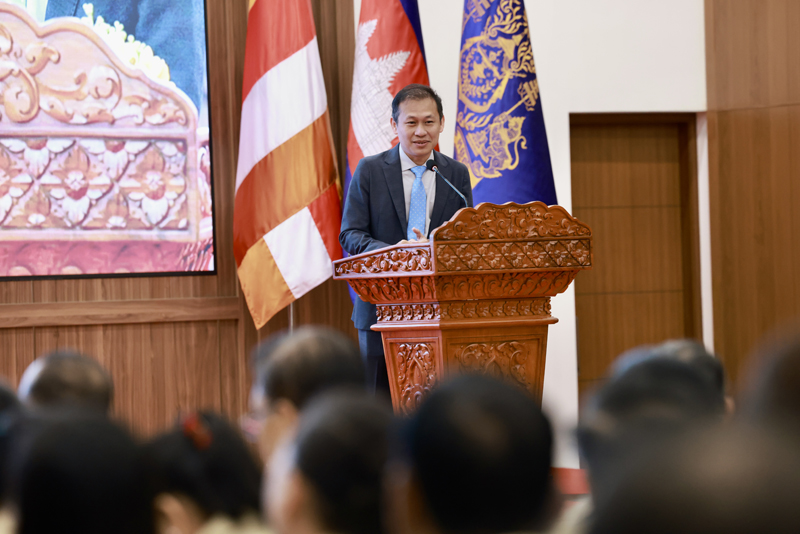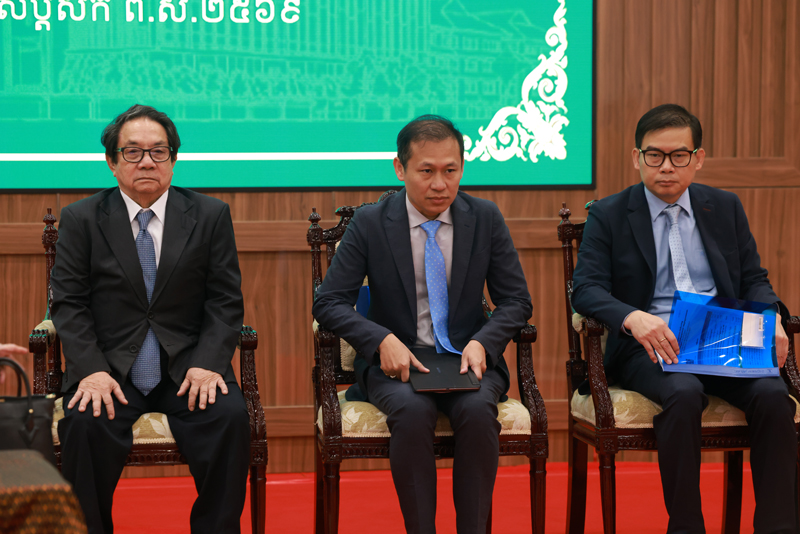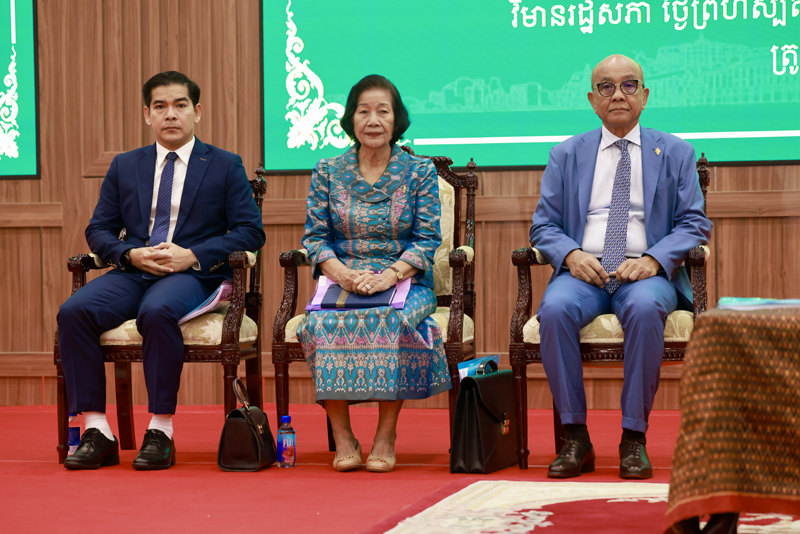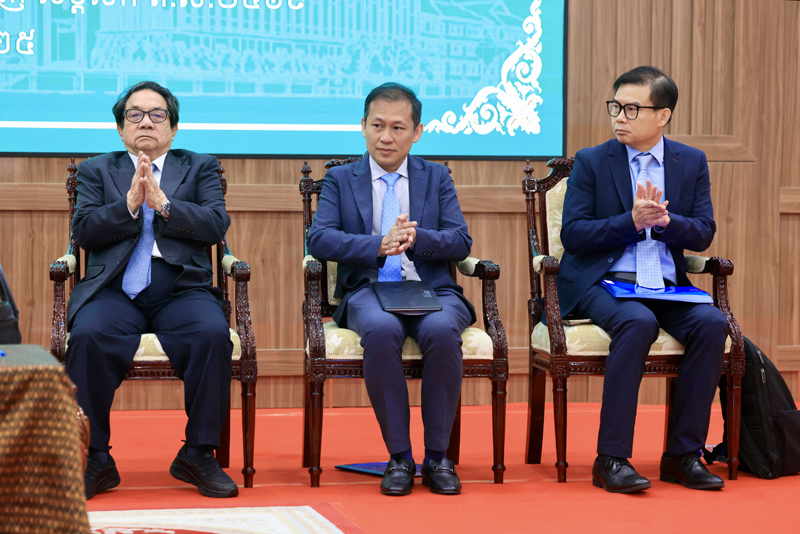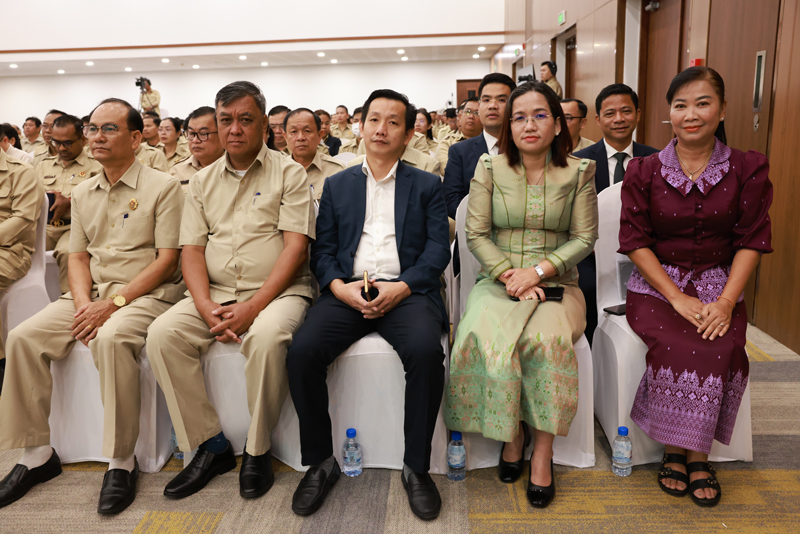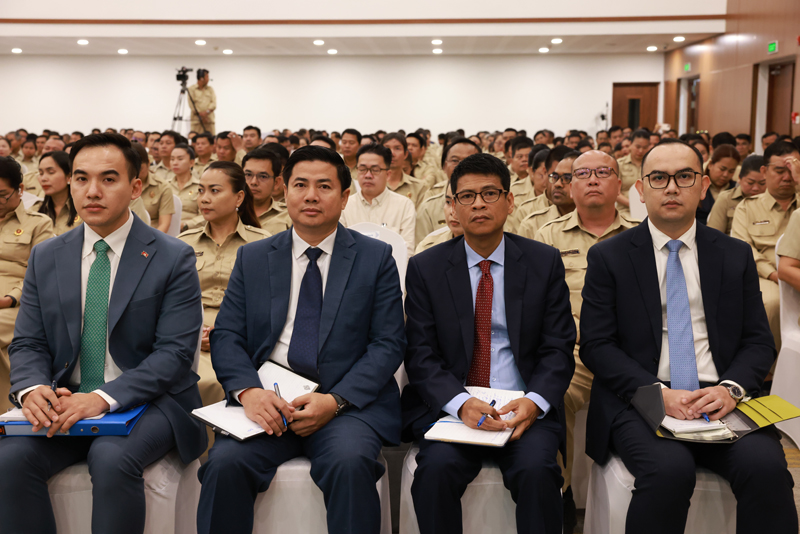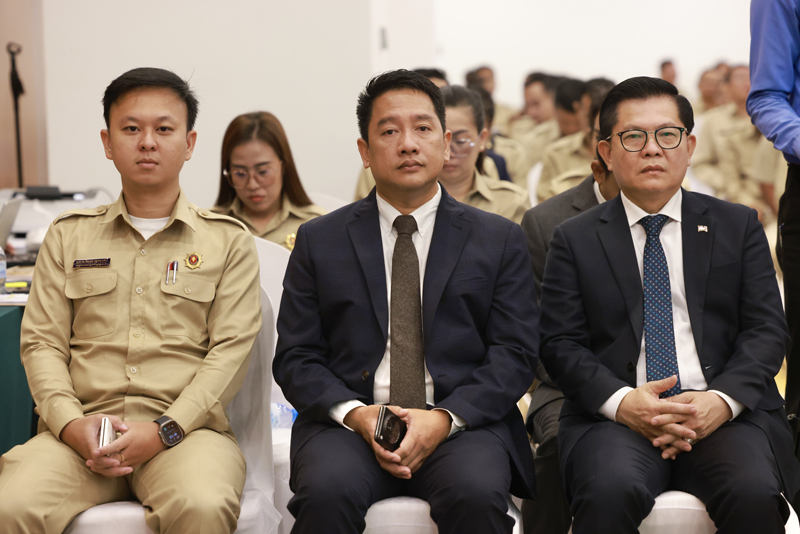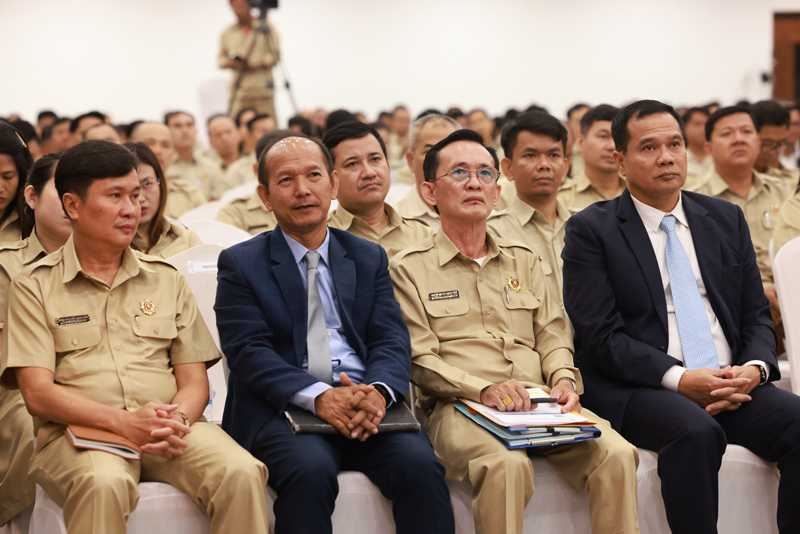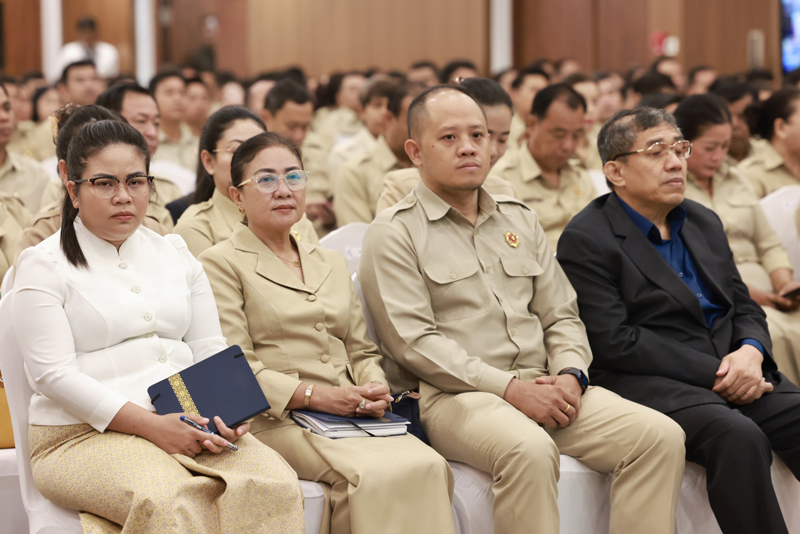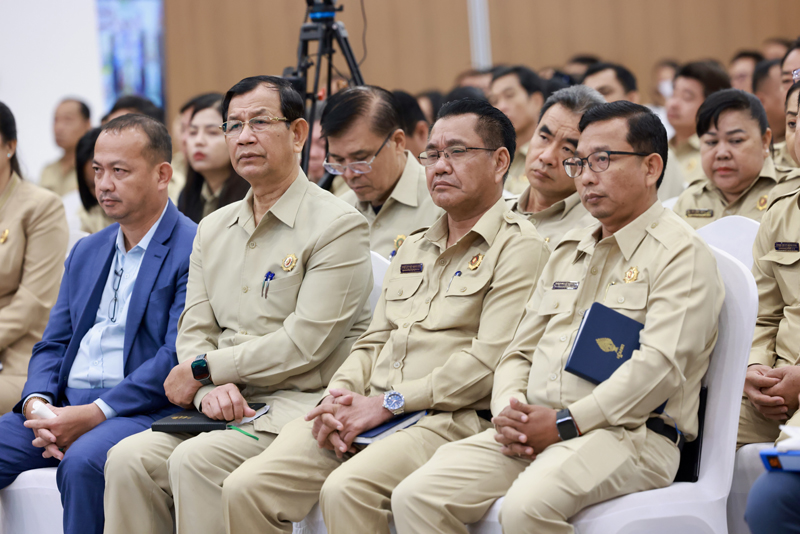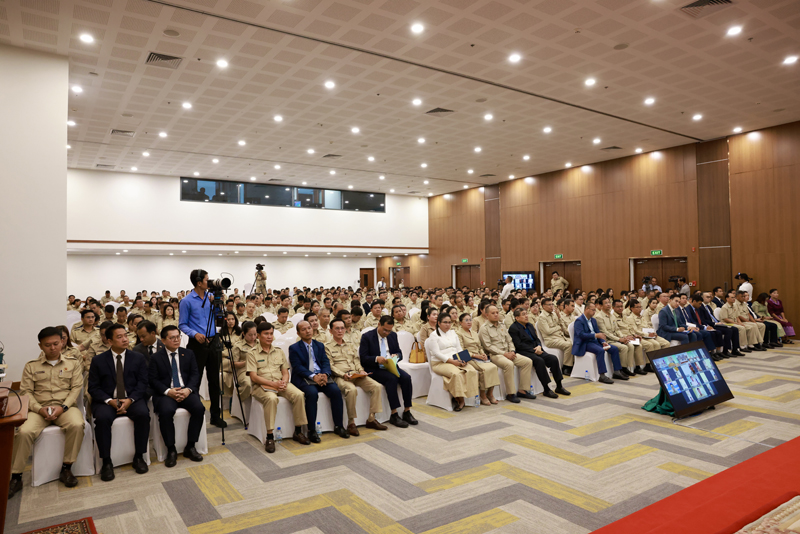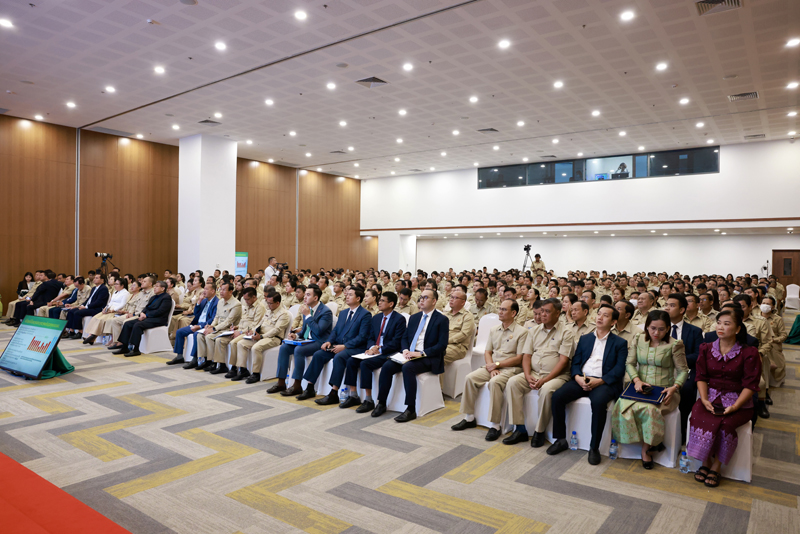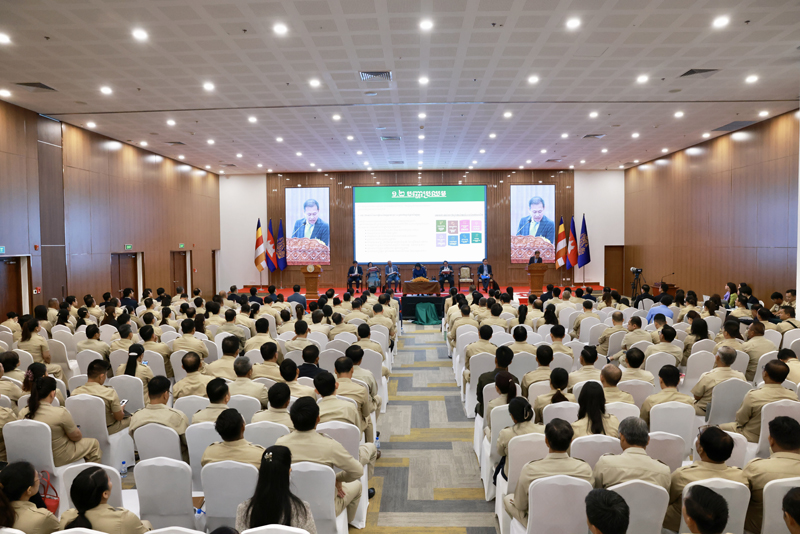Phnom Penh, 2 October 2025 — Samdech Maha Rathsapheathika Thipadei Khuon Sudary, President of the National Assembly of the Kingdom of Cambodia, on Thursday presided over the opening of a Dissemination Forum on the Progress and Way Forward in the implementation of the Public Financial Management Reform, Public Administration Reform, and the E-Parliament system.
The full-day forum, held at the National Assembly Palace, brought together more than one thousand participants, including members of the Standing Committee, lawmakers, and officials of the Secretariat-General of the National Assembly.
In his welcome remarks, H.E. Leng Peng Long, Secretary-General of the National Assembly, expressed appreciation to the working groups for their efforts in facilitating and organizing the event. He emphasized that the ongoing reform is a vital step in strengthening the Secretariat-General’s capacity and performance in line with the Pentagonal Strategy–Phase I of the Royal Government of the 7th Legislature.
H.E. Khoun Davith, Deputy Secretary-General of the National Assembly and Chairman of the Public Financial Management Reform Working Group, presented a comprehensive report on progress, challenges, and future directions. He reaffirmed that reforms in public financial management, public administration, and the E-Parliament system are essential for building a professional, efficient, and accountable administration.
He noted that the National Assembly’s Public Financial Management Reform has been well recognized by the Ministry of Economy and Finance. These efforts, he said, are key to strengthening good governance, transparency, accountability, performance-based budgeting, and institutional development to better serve the people.
On public administration, H.E. Khoun Davith highlighted new initiatives, including multifunctional ID cards for Secretariat-General officials that serve simultaneously as civil servant identification, ATM cards, and electronic access passes to the National Assembly. Other innovations include the pilot use of a facial recognition system for staff attendance.
He further reported that development of the E-Parliament system has reached 70 percent completion, with nine modules currently under implementation. These cover electronic voting for plenary sessions, digital management of parliamentary and staff profiles, property management, leave administration, and institutional archiving — all of which lay the foundation for a modern, digital legislature.
Before delivering her keynote address, Samdech Khuon Sudary paid tribute to the heroic Cambodian army stationed along the border, praising their dedication to protecting the nation’s sovereignty and ensuring peace and stability for the people.
Samdech Khuon Sudary stressed the urgency of reform, warning: “We must act decisively to achieve our goal. If we do nothing and stand still, we will fall behind in implementing the E-Parliament. In today’s context, we cannot remain still; we must move forward and embrace positive change.”
Highlighting the complexity of institutional change, she reminded participants: “Reform is a long and complex mission for any institution. As Samdech Techo Hun Sen has said, ‘to reform is to survive; without reform means death.’ Samdech Thipadei Hun Manet has also stressed that nothing about reform is ever easy.”
Samdech further underscored the need for the current leadership to ensure fairness in institutional management, to strengthen the working spirit, and to eliminate egotism.
Samdech Khuon Sudary emphasized that reform must be built on “clear vision, strong commitment, honest participation, and sacrifice,” while acknowledging that progress depends on the professionalism and willingness of officials.
She added that these reforms also contribute to Cambodia’s long-term vision of becoming a middle-income country by 2030 and a high-income country by 2050.
